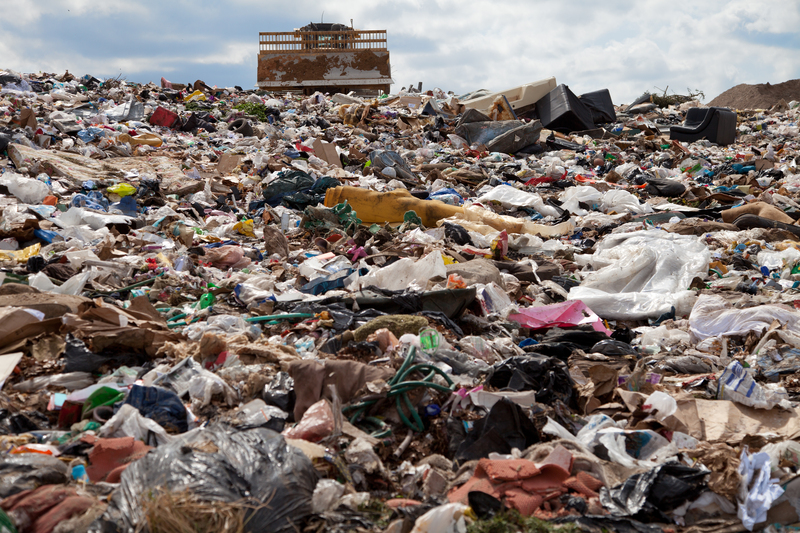Guidelines for Safe PPE Waste Disposal in Everyday Life
Personal protective equipment (PPE) has become an integral part of our daily routines, especially in the wake of global health crises such as the COVID-19 pandemic. Items such as masks, gloves, face shields, and gowns are widely used to protect individuals from hazards and infectious diseases. However, the increased usage of these essential protective materials has also led to a significant rise in PPE waste. How we handle and dispose of PPE waste has a direct impact on human health and the environment. This comprehensive guide will provide effective, safe, and environmentally-friendly guidelines for PPE waste disposal in everyday life.

Why Safe PPE Waste Disposal is Important
Improper disposal of PPE can result in severe consequences for both the community and the natural world. PPE waste can contribute to:
- Environmental pollution - Non-biodegradable PPE materials, such as single-use masks and gloves, persist in the environment and pose a threat to wildlife and ecosystems.
- Public health risks - Contaminated PPE can spread infectious diseases if handled or disposed of improperly.
- Blockages and litter - Discarded PPE often clogs drainage systems and increases urban litter.
Understanding Types of PPE Waste in Daily Use
Everyday PPE consists of a variety of materials that warrant different disposal techniques. The most commonly disposed of PPE includes:
- Disposable face masks (surgical or medical)
- Reusable cloth masks
- Nitrile, latex, or vinyl gloves
- Face shields and protective goggles
- Disposable gowns and shoe covers
Principles of Safe PPE Waste Management
To minimize health hazards, environmental damage, and community spread of diseases, adhere to the following core principles of PPE waste disposal:
- Segregation: Always keep used PPE waste separate from regular household waste whenever possible.
- Containment: Securely contain contaminated PPE in a leak-proof, sealed bag or container before disposal.
- Labeling: Clearly mark bags containing PPE waste to alert waste collectors of potential risks.
- Minimization: Reduce PPE waste by choosing reusable options where safe and appropriate.
- Responsibility: Take personal responsibility for disposing of PPE properly in both private and public settings.
Practical Steps for Safe PPE Waste Disposal in Everyday Life
Step 1: Remove PPE Carefully
Proper disposal starts with safely removing your PPE. Wash your hands before and after handling any used equipment. Try not to touch the outer surfaces, which are most likely to be contaminated.
Step 2: Bag the Waste Securely
Single-use masks, gloves, and other contaminated PPE should be placed directly into a dedicated bag--preferably a small, leak-proof plastic bag. Always tie the bag securely and avoid compressing the contents so as not to release contaminants.
Step 3: Label the Bag (If Applicable)
While not always a legal requirement for home waste, adding a note or mark such as "Used PPE - Do Not Reopen" helps safeguard waste collectors and cleaners. For workplaces, labeling is highly recommended.
Step 4: Dispose of the Bag with Care
- Place bagged PPE waste into your designated general waste bin (not recycling).
- Keep out of public spaces or recyclable bins to avoid contamination.
- Always wash your hands thoroughly after disposal with soap and water or use hand sanitizer containing at least 60% alcohol.
Step 5: Clean Reusable PPE Properly
If you use reusable cloth masks or PPE, launder them daily in hot water (60?C or 140?F minimum), and dry them completely before reuse. Never dispose of reusable PPE as regular garbage unless it is damaged or contaminated beyond cleaning.
Step 6: Take Special Care in Public Spaces
When discarding PPE in public areas (parks, malls, workplaces), use designated PPE waste bins whenever available. If they are not provided, carry your used PPE in a bag until you can dispose of it safely at home.
Important Safety Tips for PPE Waste Disposal
- Never reuse disposable PPE. It cannot be cleaned or disinfected for safe second use.
- Do not flush masks or gloves down toilets. This causes plumbing blockages and environmental pollution.
- Avoid touching your face after handling used PPE.
- Keep PPE waste out of reach of children and pets.
- Participate in local collection drives if your community organizes them for PPE waste.
The Environmental Impact of Improper PPE Disposal
Poorly managed PPE waste is resulting in a new wave of pollution, particularly in urban and coastal environments. Masks and gloves, often made from polypropylene and other plastics, break down into microplastics that pollute soil and waterways, endanger wildlife, and can even enter the food chain. Birds and marine animals can be seriously injured by ingesting or becoming entangled in discarded PPE.
Our collective commitment to safe, responsible PPE waste disposal is crucial to prevent further environmental harm.
PPE Waste Disposal and Local Regulations
Applying the correct PPE disposal method depends in part on your local or national regulations. Many waste management authorities have issued specific PPE waste guidelines in recent years:
- Some municipalities require separate PPE waste collection bins.
- Healthcare facilities may provide community drop-offs for PPE waste.
- Workplaces should have clear protocols for PPE safe disposal to protect staff and janitorial teams.
Reducing PPE Waste: Sustainable Alternatives
While single-use PPE is sometimes necessary, there are ways to reduce overall PPE waste in daily life:
- Switch to reusable cloth masks that can be washed and reused safely.
- If wearing gloves is not medically necessary, practice frequent handwashing instead.
- Encourage schools and workplaces to adopt recyclable or compostable PPE where available.
- Support research and innovation in biodegradable PPE products.
By minimizing the use of single-use PPE, you contribute to a cleaner and healthier environment while maintaining personal safety.
Education and Community Responsibility
Increasing awareness and promoting guidelines for safe PPE waste disposal can prevent widespread pollution and community health risks. Here are strategies to help educate those around you:
- Share information with family, friends, and coworkers about proper disposal techniques.
- Encourage the provision of labeled PPE bins in public spaces.
- Advocate for environmental education on the impact of PPE waste in schools and organizations.
- Organize PPE clean-up drives or participate in local green initiatives.

Frequently Asked Questions about PPE Waste Disposal
Can PPE waste be recycled?
No, most disposables--such as masks, gloves, and gowns--cannot be recycled due to contamination risk and material composition. They must be treated as general municipal waste unless a specific recycling program exists in your region.
What if I see PPE litter in my community?
If you choose to pick up discarded PPE, always wear gloves, use a tool like tongs, and place it in a double bag for disposal. Immediately sanitize or wash your hands afterward.
How long should PPE waste be kept before disposal if someone in the household is ill?
If disposing of PPE from a sick individual, such as during home quarantine, many health authorities recommend sealing it in a bag and waiting 72 hours before placing it out for collection to reduce infection risk.
Should face shields and goggles be thrown away?
Most face shields and goggles are reusable with adequate cleaning. Only discard them as PPE waste if cracked, badly scratched, or not designed for reuse.
Conclusion: A Shared Commitment to Safe PPE Waste Disposal
Adhering to proper PPE waste disposal guidelines is essential for protecting yourself, your community, and the environment. By following safe disposal practices, minimizing single-use PPE when possible, and spreading awareness about responsible waste management, we all contribute to a safer, cleaner world.
Remember--the next time you remove your mask or gloves, safe disposal isn't just a personal duty. It's a shared responsibility for everyone's well-being and our planet's future.
Start implementing these everyday guidelines for the safe and responsible disposal of PPE waste in your life today!
